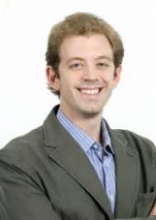CEE Seminar: Parallel Computing and Deep Learning for Civil Engineering Applications

Associate Professor
Ulsan National Institute of Science and Technology
Abstract: This seminar focuses on the theory and practical applications of deep learning in earthquake engineering. We will start with an overview on the general purpose graphic processing unit (GPGPU) -- with real applications -- and move to the available deep learning models that support such technology, Tensorflow. The final focus will be on advanced Generative Adversarial Networks (GAN). Different industries are exploiting GAN either to enhance existing images, to perform face recognitions, or to generate new classic music compositions. This study uses GAN for the generation of realistic time histories of synthetic artificial ground motions based on past data -- half-a-million past time histories. These artificial ground motions are as good as the latest advances in stochastic ground motions generation. They can be used for the design of new structures, the seismic risk assessment of existing ones and the development of new earthquake early warning systems.
Bio: Marco Torbol obtained his bachelor's degree in civil engineering and master's degree in structural engineering from the University of Padova, Italy, and worked as a certified structural engineer in Italy before moving to the U.S., where he obtained his master's degree and doctorate in civil and environmental engineering at UC Irvine. He is now an associate professor at the Ulsan National Institute of Science and Technology in South Korea. His research interest focuses on reliability of structures and complex systems, structural health monitoring and disaster modelling. His own personal focus is on parallel computing and deep learning and their applications to structural engineering.
Share
Upcoming Events
-
MAE 298 SEMINAR: Biomechanics of Rotator Cuff
-
CBE 298 Seminar: Micro- and Nanofluidic Systems for Molecular Biosensing, Nanotoxicity, and Optogenetics
-
MSE Special Seminar: Architecting 3D Complex Materials for Sustainability
-
MSE Special Seminar: Decarbonizing Industries for a Climate-resilient Future - From Renewable Energy to Sustainable Material Recovery
-
CEE Seminar: BIM and the Digital Twin
